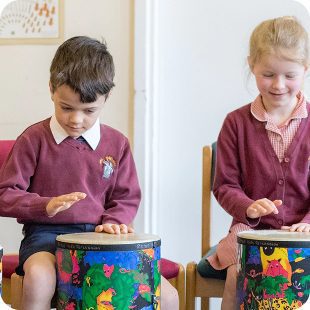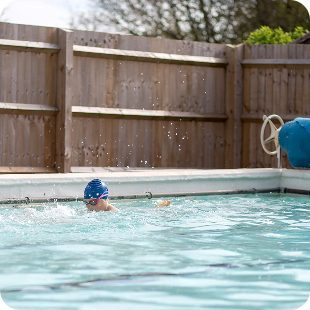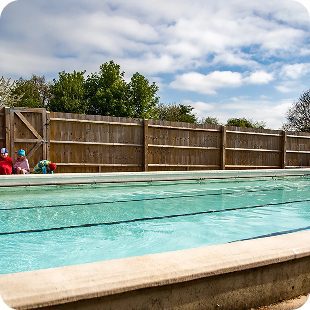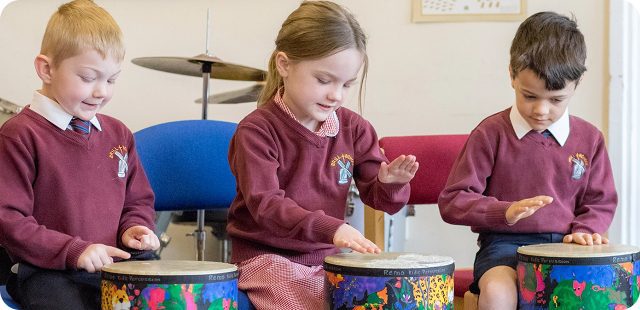
With the wind in our sails, we shall live ‘life in all its fullness’John 10:10
Welcome from The Headteacher
Welcome to Brill School, set in the beautiful countryside of Buckinghamshire. Brill is a happy school. Our children make firm friendships and are creatively immersed in their learning. From their reception year onwards, children at Brill are encouraged to discover their interests and develop their personalities as they progress through the school.
Mrs Louise White
Headteacher
LatestNews
VIEW ALL NEWS

Brill Church of England School
Brill School PTA are running an Easter Egg Hunt event for the children at school tomorrow from 3pm. Please come along and support our wonderful school. We look forward to seeing many of you there.

Brill Church of England School
Brill School are getting rid of some chairs.
X6 green
X3 blue
X4 black
If anyone could make use of them, please comment below to arrange collection. They are used but in good condition.
We would like to get rid of them by the weekend.
X6 green
X3 blue
X4 black
If anyone could make use of them, please comment below to arrange collection. They are used but in good condition.
We would like to get rid of them by the weekend.

Brill Church of England School
Parents,
Please come along to our monthly parent drop in on Wednesday 28th Sept, 3-3:30pm.
This will be an opportunity for you to look at your children’s books and progress so far. The teachers will be in their classes to talk to.
We look forward to seeing you there.
Please come along to our monthly parent drop in on Wednesday 28th Sept, 3-3:30pm.
This will be an opportunity for you to look at your children’s books and progress so far. The teachers will be in their classes to talk to.
We look forward to seeing you there.

Brill Church of England School
The rain doesn't stop us!
Click on the link below to see the children enjoying the rain in their new wet weather clothing.
https://www.brill.bucks.sch.uk/news-events/news
Click on the link below to see the children enjoying the rain in their new wet weather clothing.
https://www.brill.bucks.sch.uk/news-events/news

Brill Church of England School
Year 1 have been enjoying their practical maths lessons outside!
Click the link below to see the blog post on the maths page of our website.
https://www.brill.bucks.sch.uk/curriculum/maths
Click the link below to see the blog post on the maths page of our website.
https://www.brill.bucks.sch.uk/curriculum/maths

Brill Church of England School
🎄🎄🎄
Parents, children and community members, this week is the last week to order your Christmas trees from Windmill Pre-school.
Please click on this link to place your order
https://goo.gl/forms/I0ULRaG2OeVn6Mrr2
Parents, children and community members, this week is the last week to order your Christmas trees from Windmill Pre-school.
Please click on this link to place your order
https://goo.gl/forms/I0ULRaG2OeVn6Mrr2

Brill Church of England School
Brill Primary School’s Open Day for new and prospective parents.
Please contact the office to book a space.
We look forward to seeing you there.
Please contact the office to book a space.
We look forward to seeing you there.

Brill Church of England School
Year 5 Parents
The coach is due back now at 4:45pm/5pm.
See you at the Pointer.
The coach is due back now at 4:45pm/5pm.
See you at the Pointer.
 <
<Brill Church of England School
Brill School PTA are running an Easter Egg Hunt event for the children at school tomorrow from 3pm. Please come along and support our wonderful school. We look forward to seeing many of you there.
 <
<Brill Church of England School
Brill School are getting rid of some chairs.
X6 green
X3 blue
X4 black
If anyone could make use of them, please comment below to arrange collection. They are used but in good condition.
We would like to get rid of them by the weekend.
X6 green
X3 blue
X4 black
If anyone could make use of them, please comment below to arrange collection. They are used but in good condition.
We would like to get rid of them by the weekend.
 <
<Brill Church of England School
Parents,
Please come along to our monthly parent drop in on Wednesday 28th Sept, 3-3:30pm.
This will be an opportunity for you to look at your children’s books and progress so far. The teachers will be in their classes to talk to.
We look forward to seeing you there.
Please come along to our monthly parent drop in on Wednesday 28th Sept, 3-3:30pm.
This will be an opportunity for you to look at your children’s books and progress so far. The teachers will be in their classes to talk to.
We look forward to seeing you there.
 <
<Brill Church of England School
The rain doesn't stop us!
Click on the link below to see the children enjoying the rain in their new wet weather clothing.
https://www.brill.bucks.sch.uk/news-events/news
Click on the link below to see the children enjoying the rain in their new wet weather clothing.
https://www.brill.bucks.sch.uk/news-events/news
 <
<Brill Church of England School
Year 1 have been enjoying their practical maths lessons outside!
Click the link below to see the blog post on the maths page of our website.
https://www.brill.bucks.sch.uk/curriculum/maths
Click the link below to see the blog post on the maths page of our website.
https://www.brill.bucks.sch.uk/curriculum/maths
 <
<Brill Church of England School
🎄🎄🎄
Parents, children and community members, this week is the last week to order your Christmas trees from Windmill Pre-school.
Please click on this link to place your order
https://goo.gl/forms/I0ULRaG2OeVn6Mrr2
Parents, children and community members, this week is the last week to order your Christmas trees from Windmill Pre-school.
Please click on this link to place your order
https://goo.gl/forms/I0ULRaG2OeVn6Mrr2
 <
<Brill Church of England School
Brill Primary School’s Open Day for new and prospective parents.
Please contact the office to book a space.
We look forward to seeing you there.
Please contact the office to book a space.
We look forward to seeing you there.
 <
<Brill Church of England School
Year 5 Parents
The coach is due back now at 4:45pm/5pm.
See you at the Pointer.
The coach is due back now at 4:45pm/5pm.
See you at the Pointer.
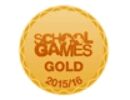
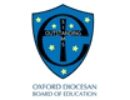
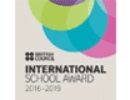

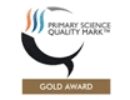

With the wind in our sails, we shall live ‘life in all its fullness’John 10:10



